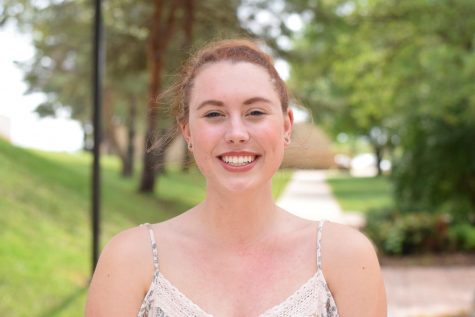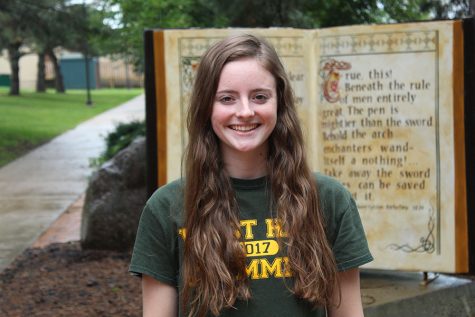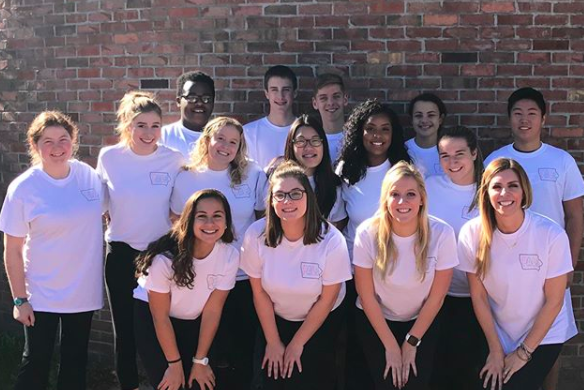Be the change
As the first school in Iowa to implement the PALs program, both West High students and teachers have high hopes on the future of the program.
In the corner of the hallway in the freshman wing, two groups of students converge in a classroom. Both groups are huddled around their two respective tables, scrambling to reach the game at hand: Jenga. Multiple languages can be heard throughout the room amongst laughter. Two floors down, other students bunch around bins of water to prepare white bandanas for tie-dying. In both rooms, there is an undeniable feeling of warmth. The students are independent and hands-on; they are genuinely dedicated to working with others. This is PALs.
The basis of PALs, also known as Peer Assistance Leadership, is for students to build resiliency through peer mentorship. Throughout this school year, they are taking part in a class dedicated to helping out the Iowa City community and their West High peers.
“The whole idea behind PALs is to create a better school culture and climate for students who might not feel connected so they have some place or someone they can turn to,” said Mayra DeVries, the adviser of the program. “Studies have proven that as long as students have more of a connection with somebody at school and have a positive peer relationship, [then] they’ll do much better academically and socially.”
The PALs program originated in Texas in 1980 and steadily spread to other states. West High is the first school in Iowa to implement the PALs program. DeVries, a former middle school counselor, was looking for a better way to utilize her counseling skills. After seeing the PALs program work for students at her previous schools, DeVries believed PALs was just what West High needed.
Over the summer, DeVries underwent training for how to run the program, which included an overview of the curriculum and techniques for teaching students. However, the standard curriculum was written in the early ’90s, leaving DeVries to modernize the program.
PALs functions as a class during the school day and has 28 mentors across two periods. Last year, a group of students were recommended by teachers to be mentors, or PALs. Once a week, each PAL meets with their assigned PALee, a West student who has been identified by the school to be in need of social, emotional or academic assistance. However, this isn’t the full extent of the program. On Mondays and Fridays, students in the class generally do enrichment activities to learn essential skills about communication. Tuesdays and Wednesdays are dedicated to community outreach. This includes visiting elementary schools, assisting students in Adaptive PE and working with ELL students.
For PAL Micah Bailey ’18, visiting elementary schools is a particularly engaging activity.
“We went to Weber to mentor specific elementary school kids … I was supposed to be with one student but he wasn’t there so I went with a different student who was from Guatemala and didn’t speak English at all,” Bailey said. “I had to try and teach him math in Spanish, and that was a lot of fun. He was really nice, and it was fun trying to talk to him.”
Finding a connection with another person can be difficult in any situation, and having a language barrier can make it even harder. However, it doesn’t seem to be a problem for anyone in the PALs program. While working with ELL students, PAL Bailey Raso ’18 enjoys learning about different communities and languages from around the world.
“Working with the ELL kids is super great. They aren’t very good at English and they’re not in a ton of classes that you or I would be in,” Raso said. “It’s super awesome to get to know those people as well and learn about their culture and learn about their life.”
Aside from being leaders, DeVries sees PALs as a very diverse group of people who are always willing to help the world in any way possible.
“They bring so many ideas that are just so out of the box about how we can help West, help the community,” DeVries said.
The PALs program wants to bring positive change to West and help a variety of students. Raso hopes that through the PALs program, the students being mentored will realize they are not alone.
“The kids that we mentor, sometimes they just need somebody to talk to. This is an environment where it’s a safe space and it’s okay to talk to us about academic problems [and] personal problems,” Raso said. “I feel like it will be a relief for these students to realize they are not the only people who go through these struggles and it’s super important for them to realize they have people there for them.”
For the mentors, the program is proving to be both empowering and inspiring.
“It’s a great experience with a leadership position and… getting to know people. A lot of it is me operating outside my own comfort zone,” Bailey said.
For their first year, the program is operating under the motto, “Be the Change.” DeVries hopes to expand the program to include more mentors and help more people in the future, but for now, she believes the best they can do is try and make a positive impact on West High and the surrounding area.
“We want to see some change here at West as far as [being] positive in nature and helping other students,” DeVries said. “[Our goal is to] create a ripple effect of positive change. Students love the idea of paying it forward.”
Your donation will support the student journalists of West High School. Your contribution will allow us to purchase Scholarship Yearbooks, newsroom equipment and cover our annual website hosting costs.

Emma is a senior at West High and this is her second year as the Print Entertainment Editor. When she isn't writing, Emma is busy helping Theatre West...

Jessica is a senior at West High and is enjoying her third year on staff. Though not a baller, she truly excels when it comes to taking the mic at karaoke...



